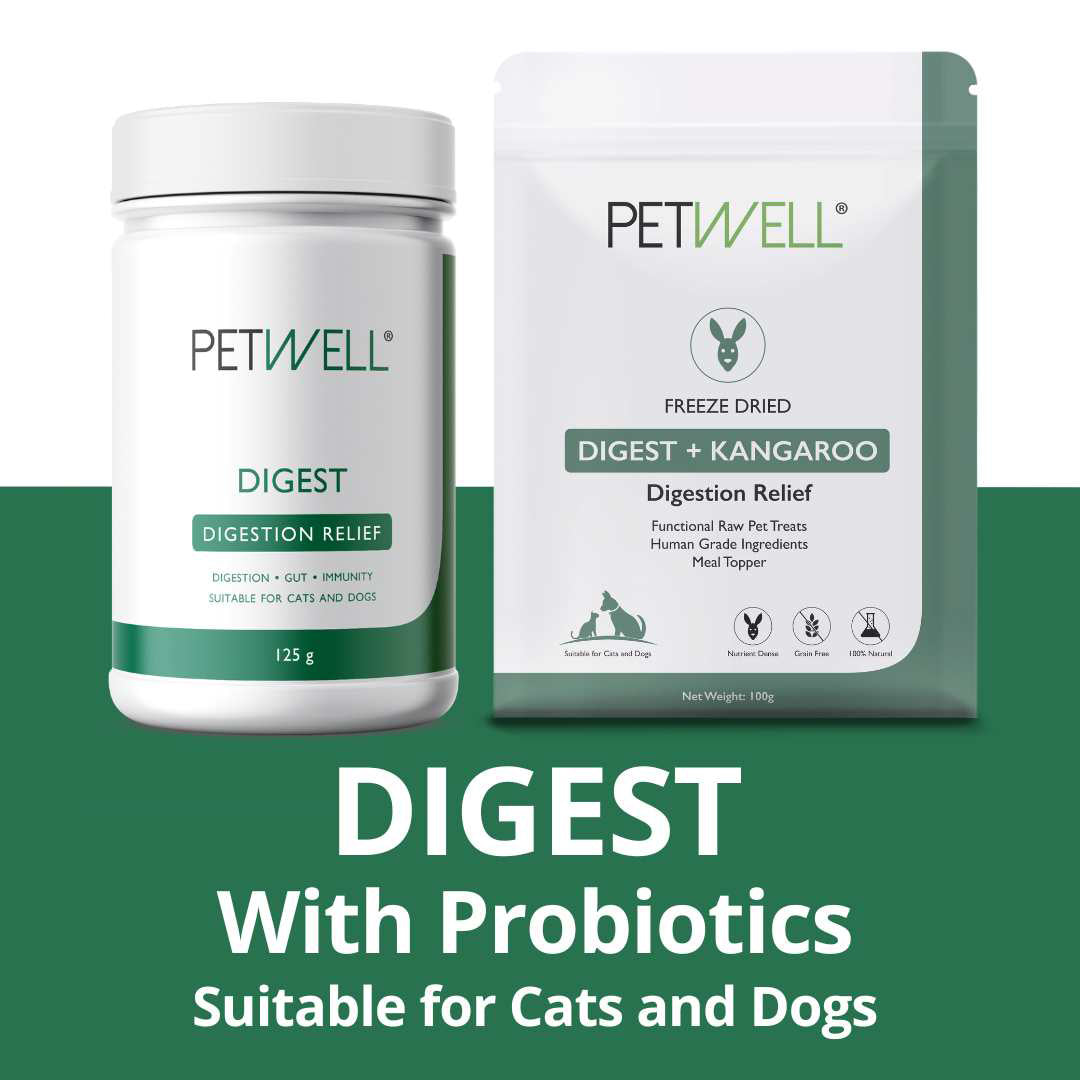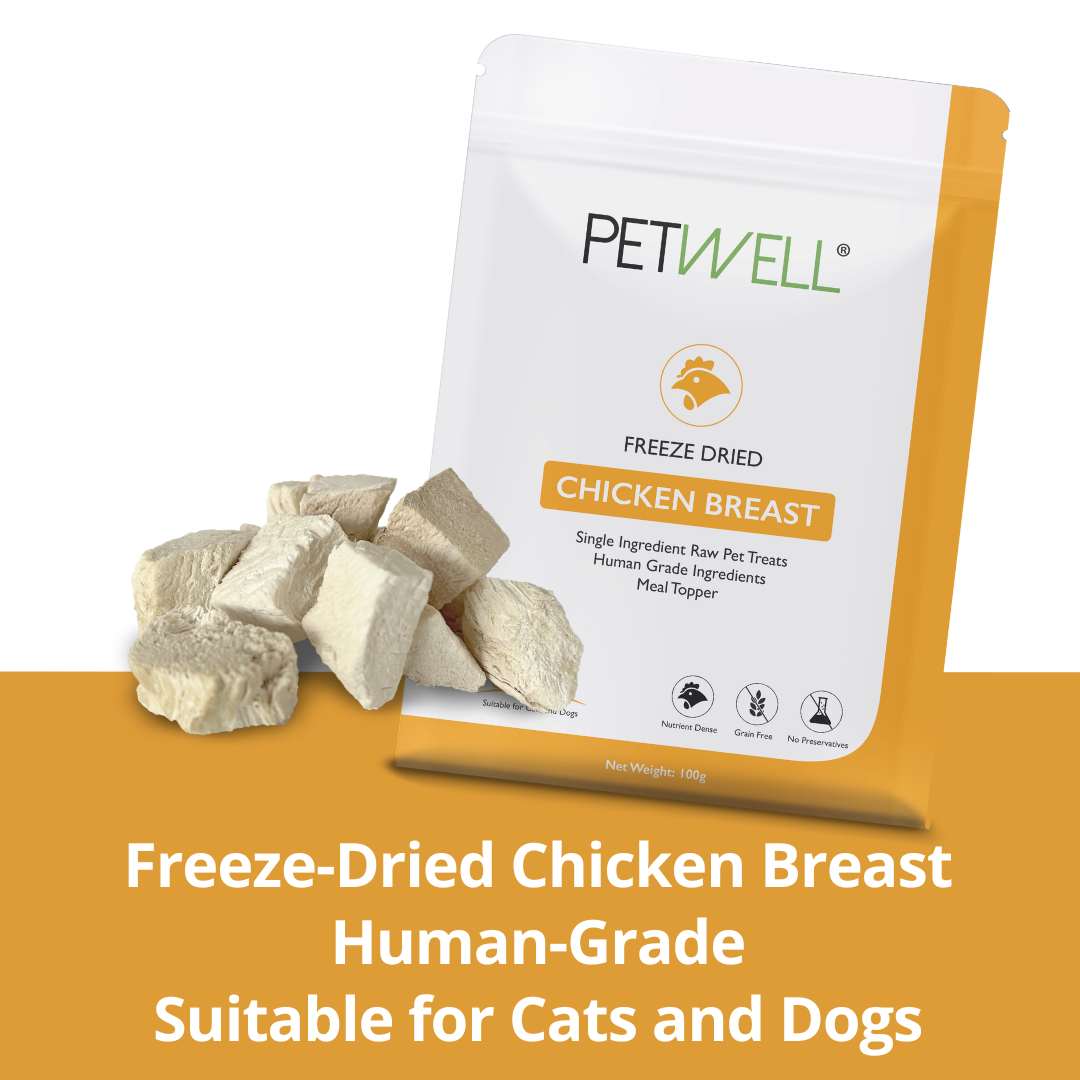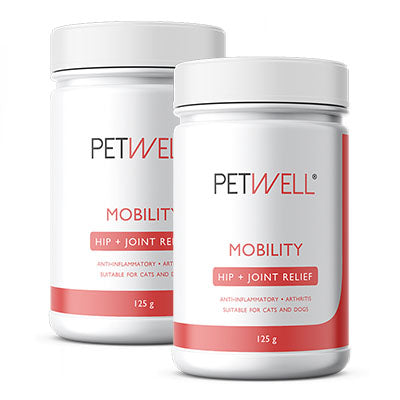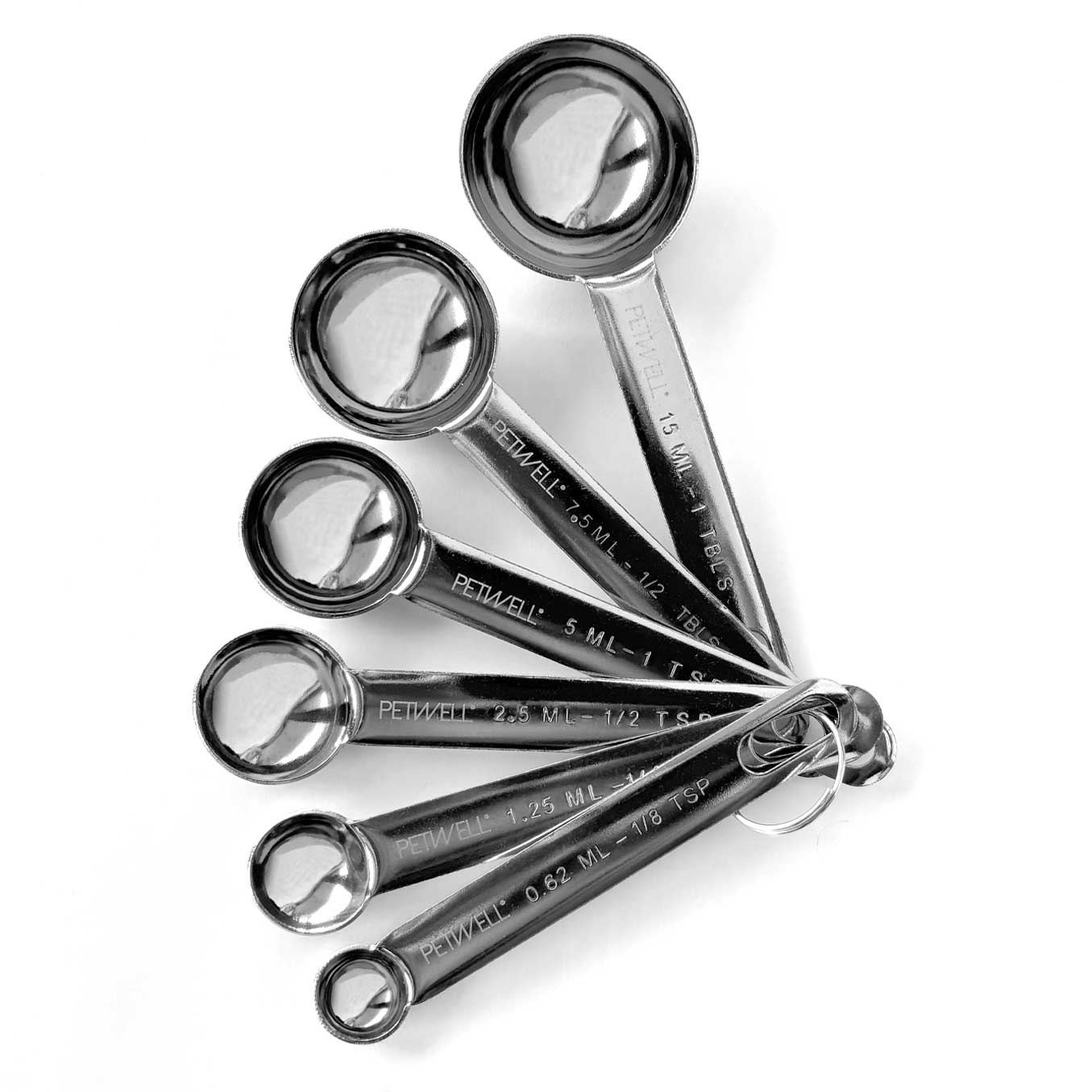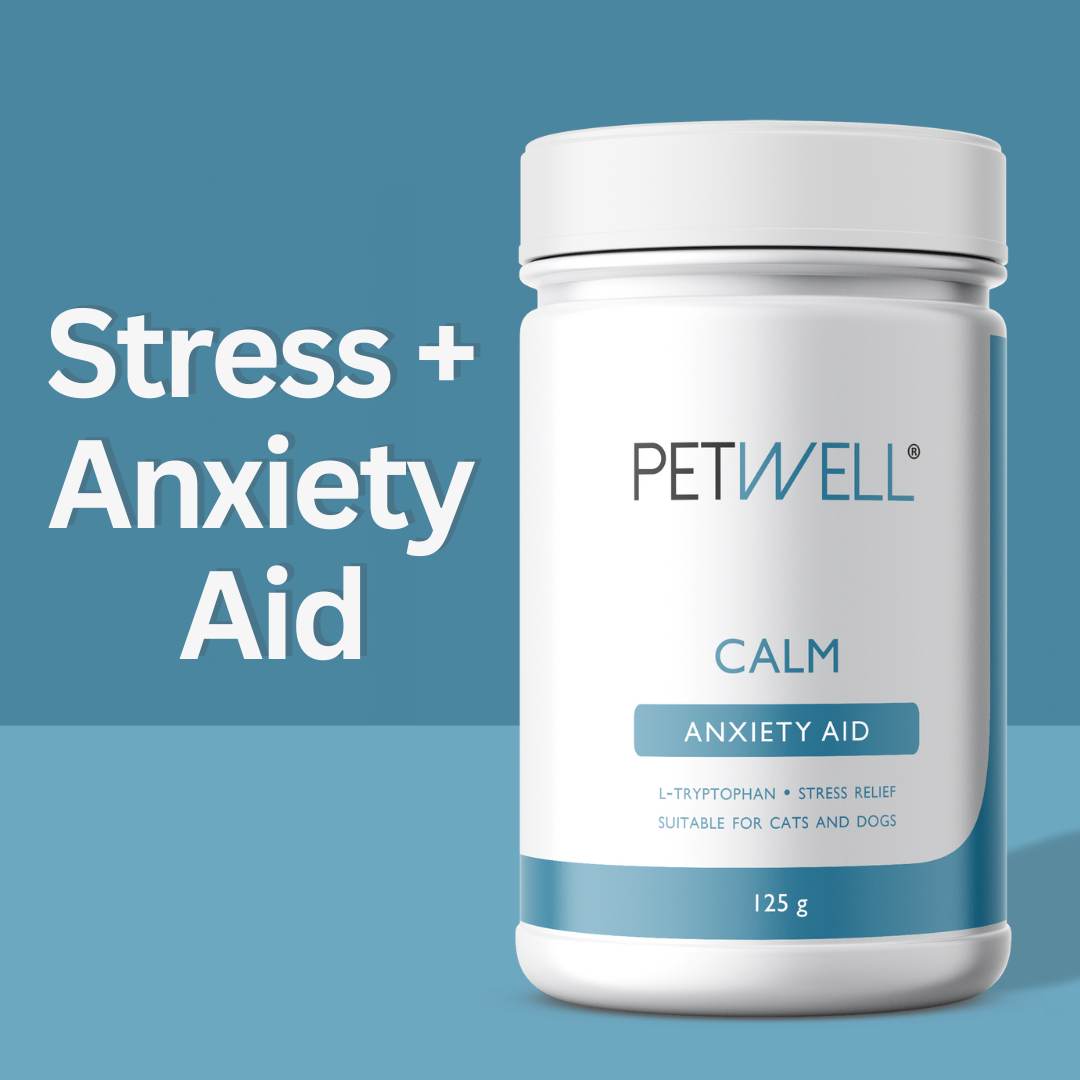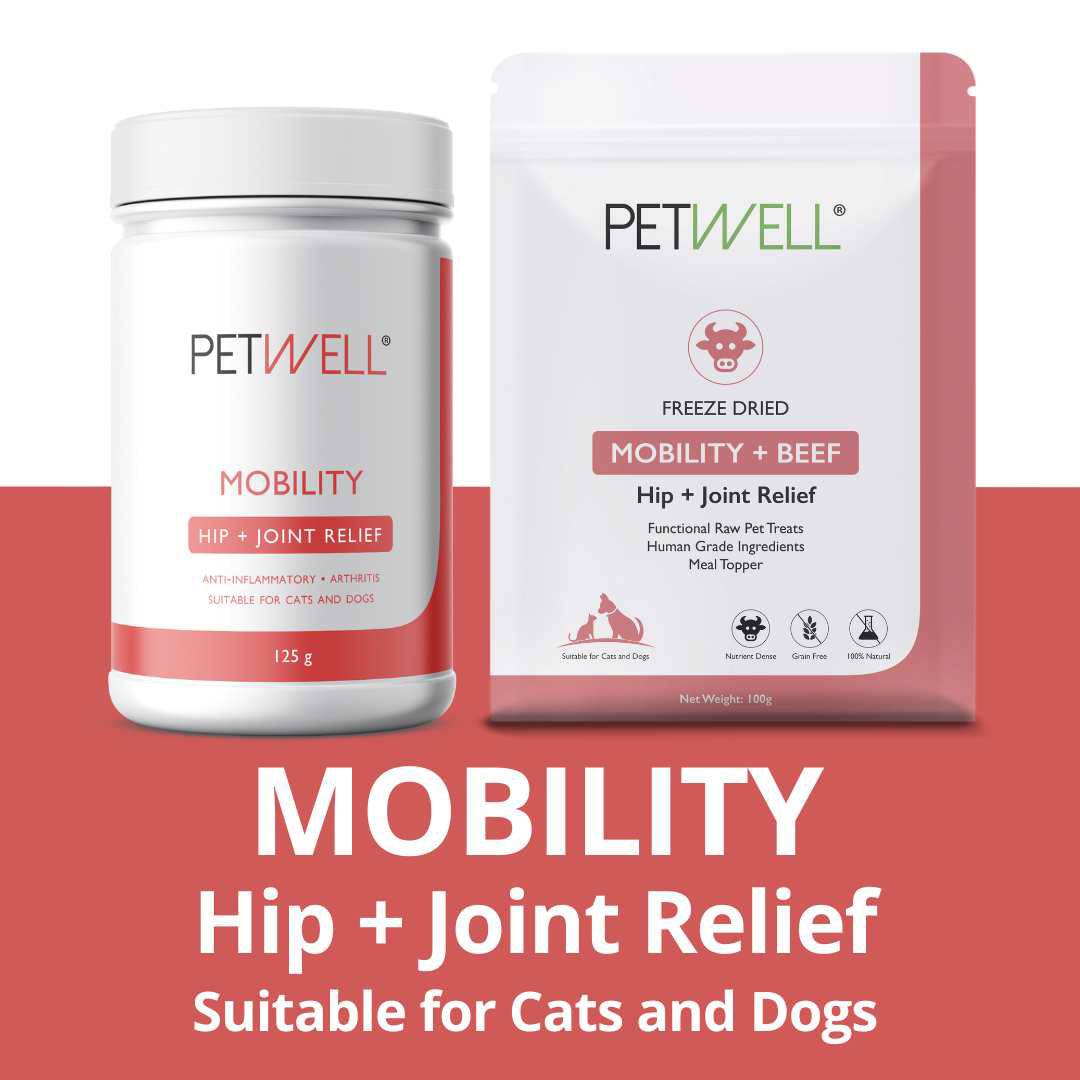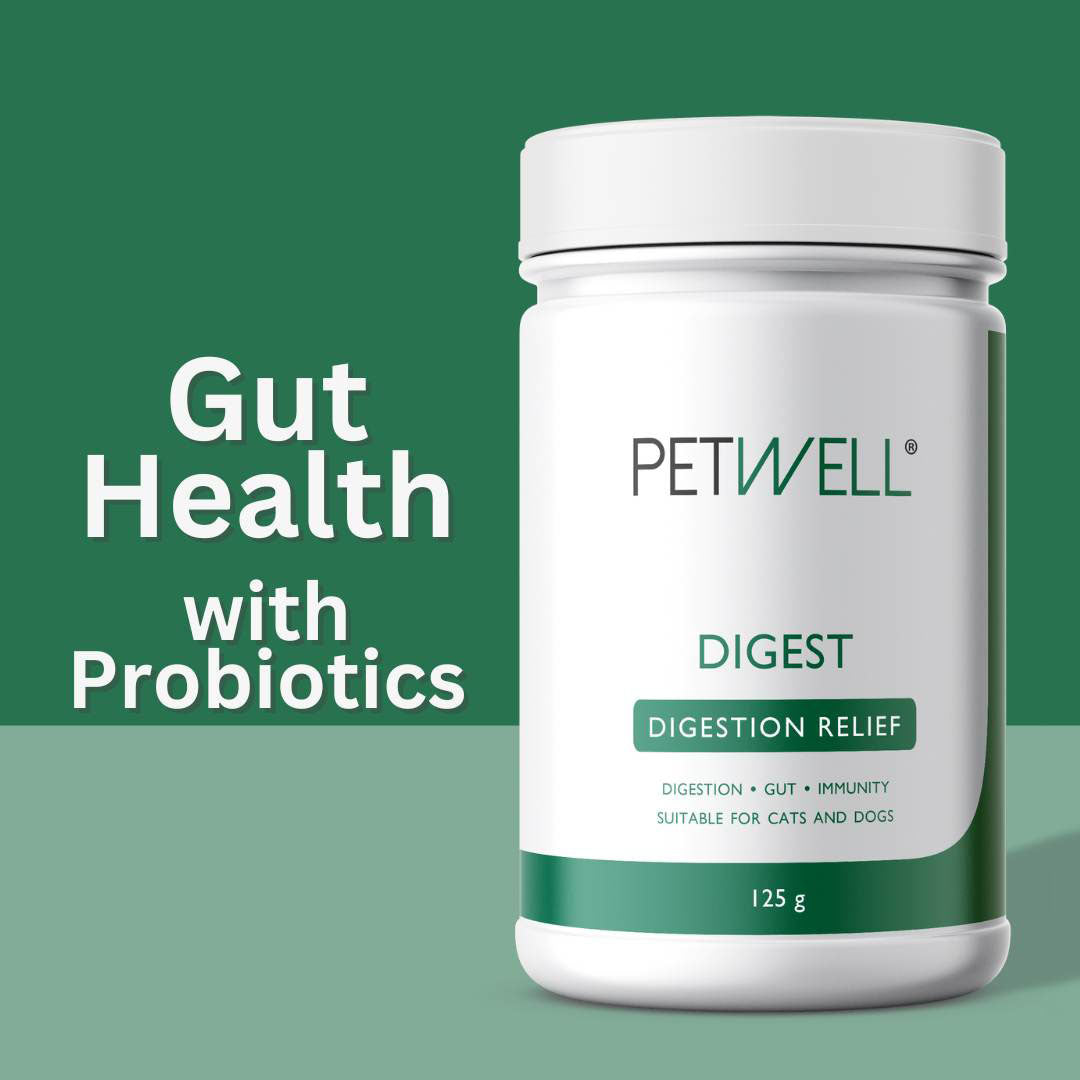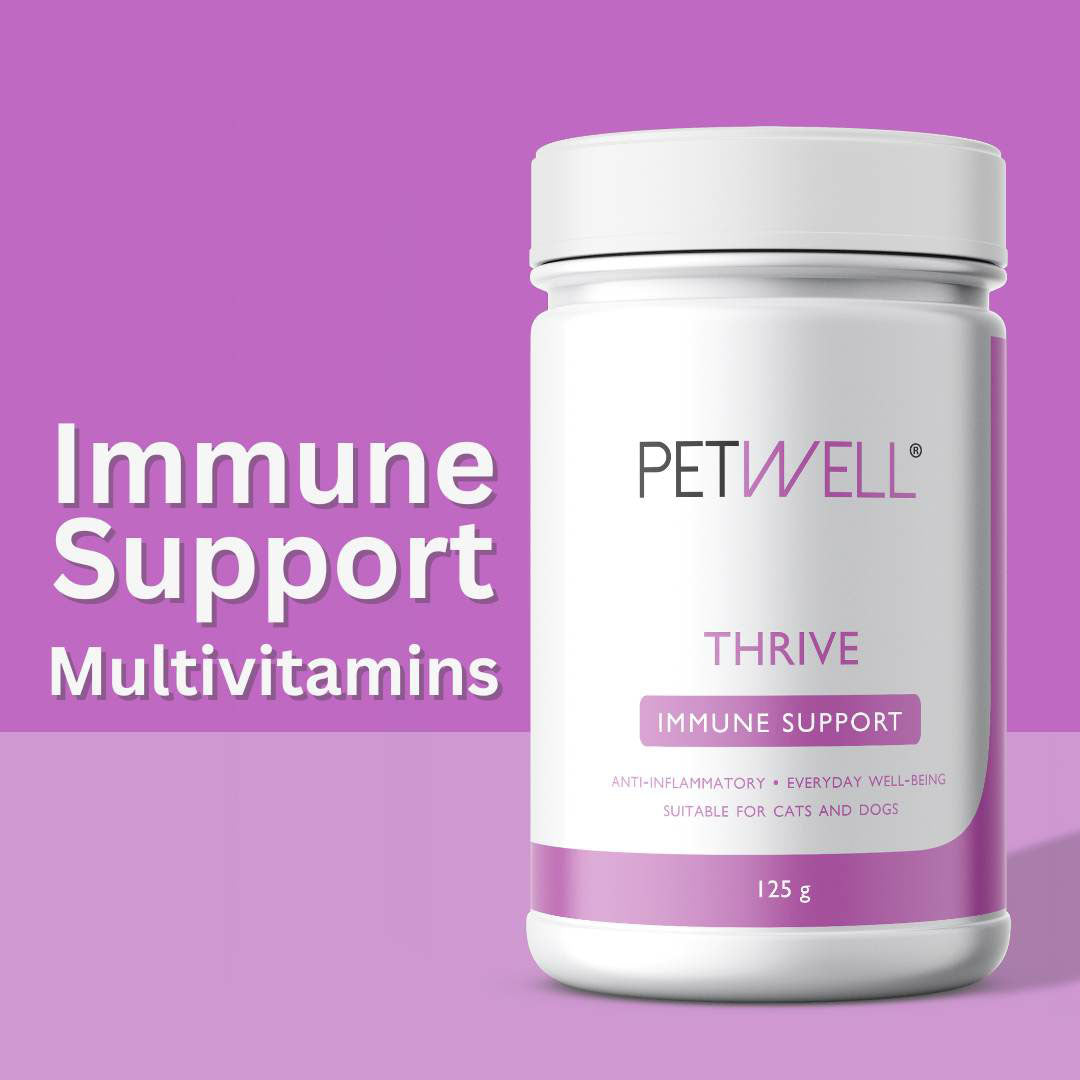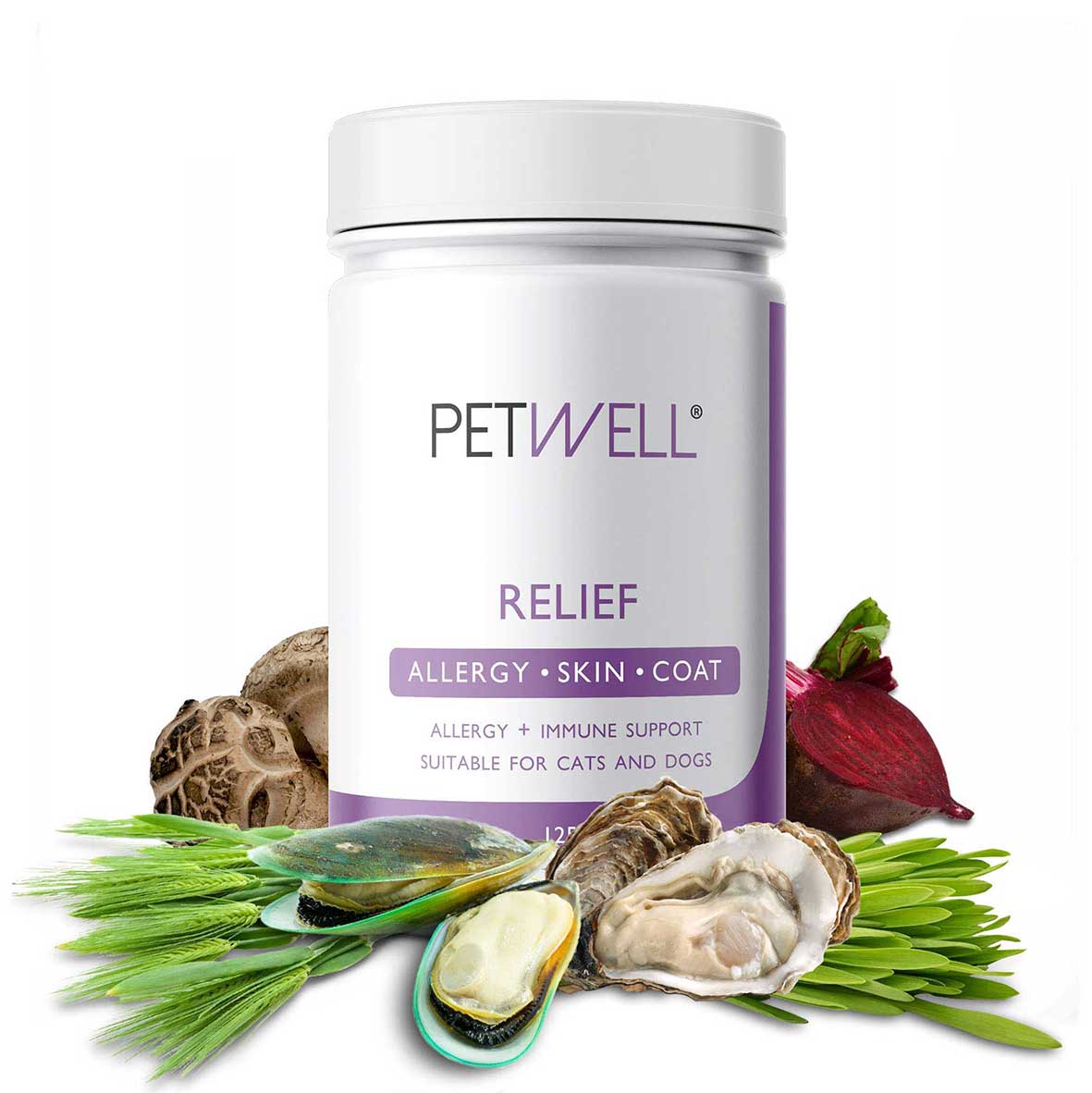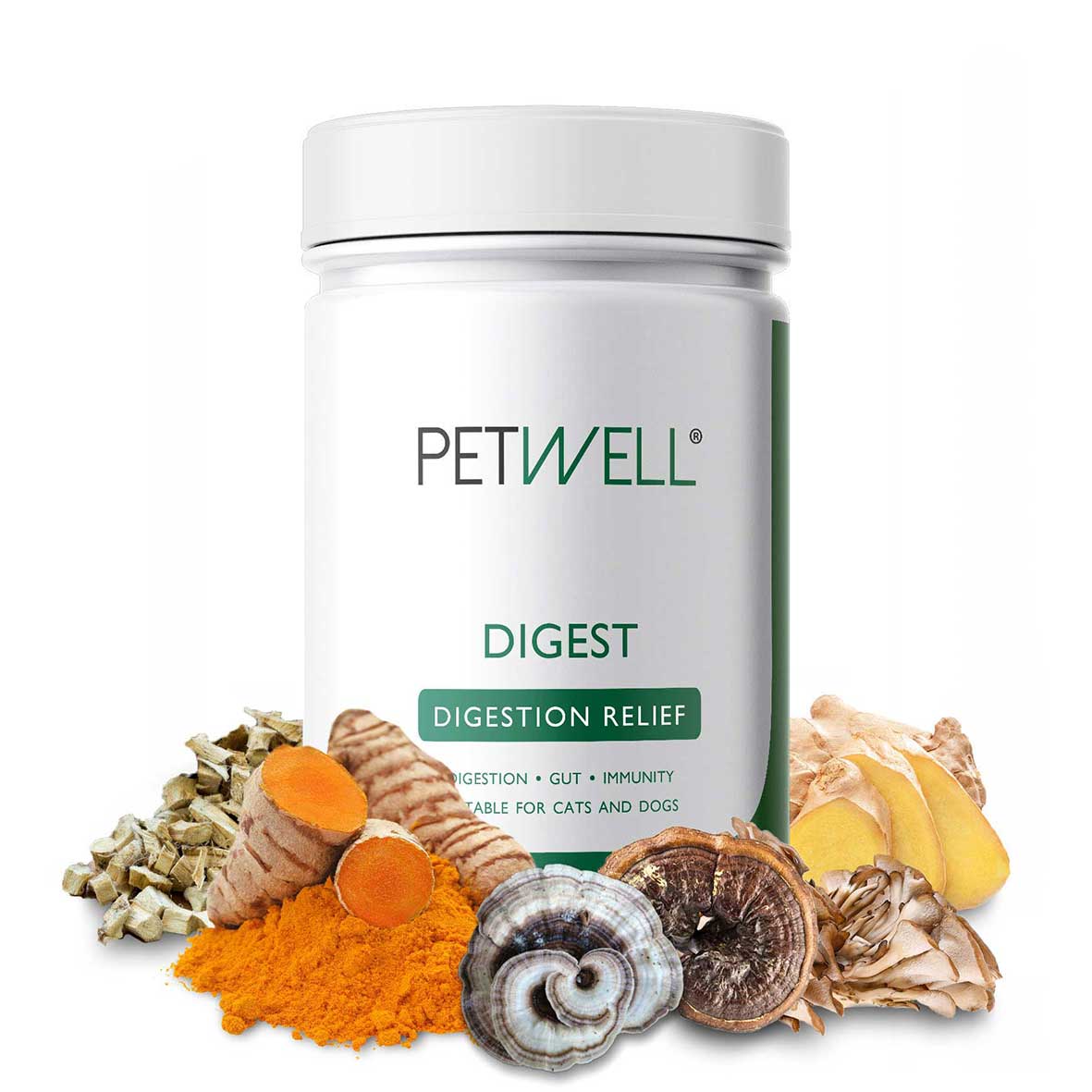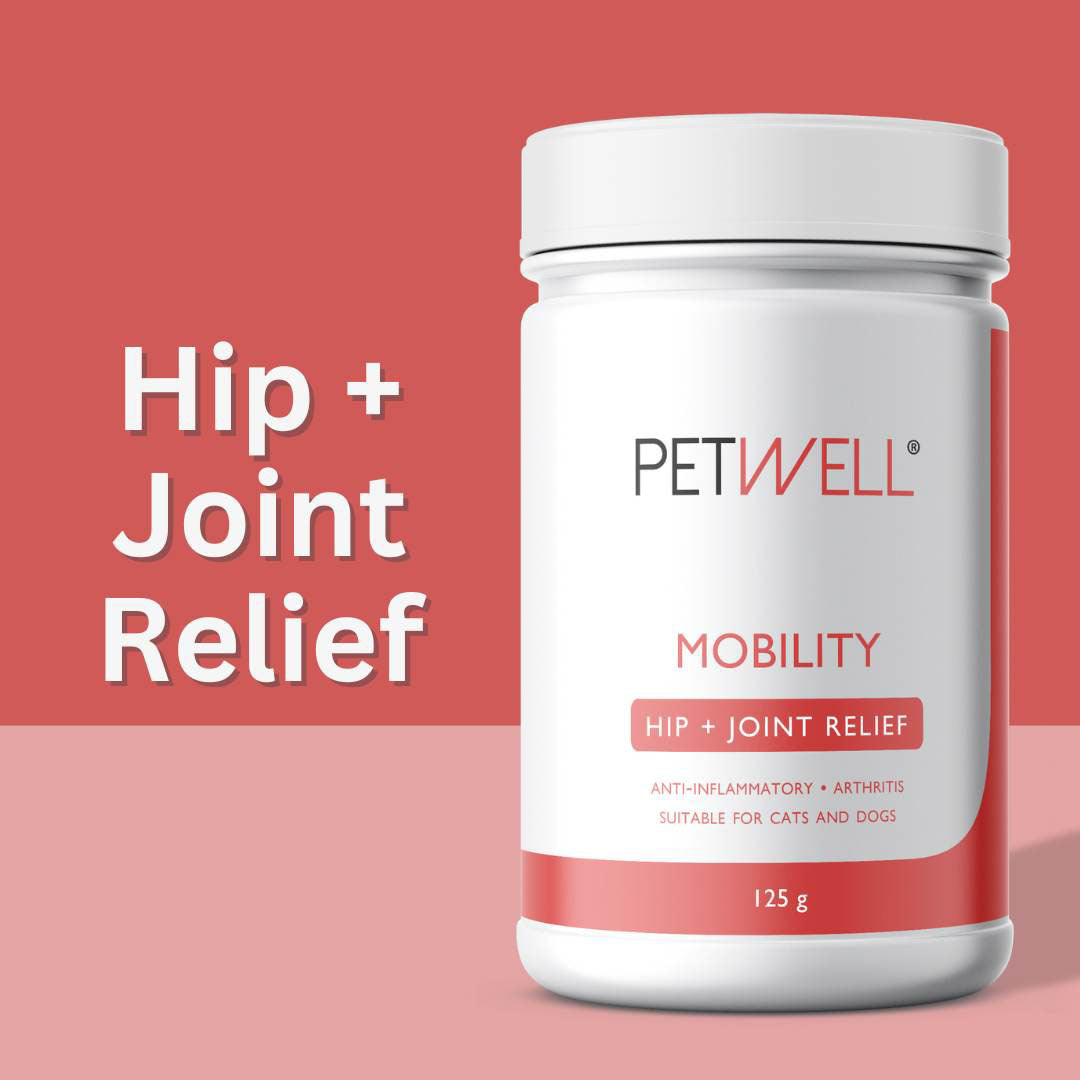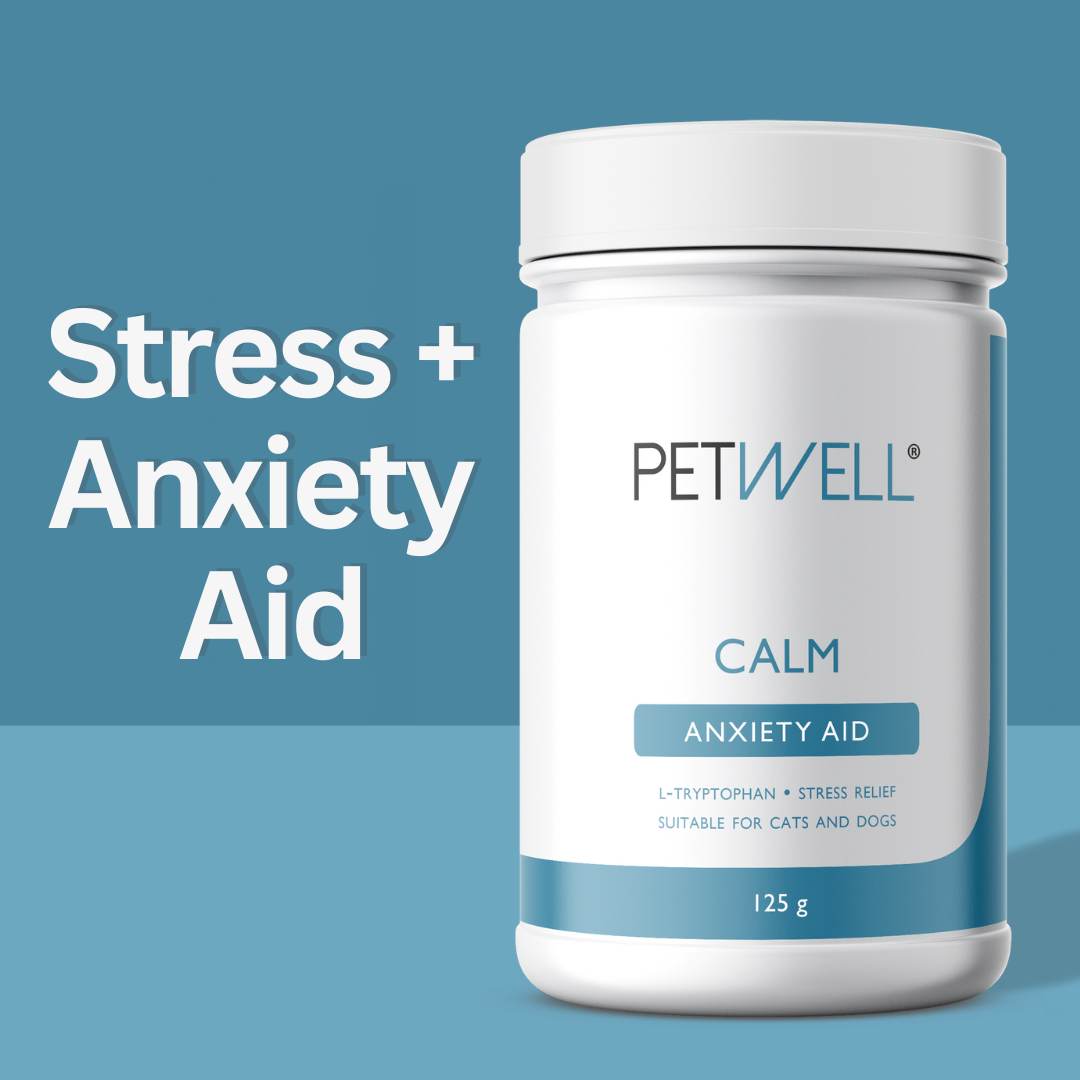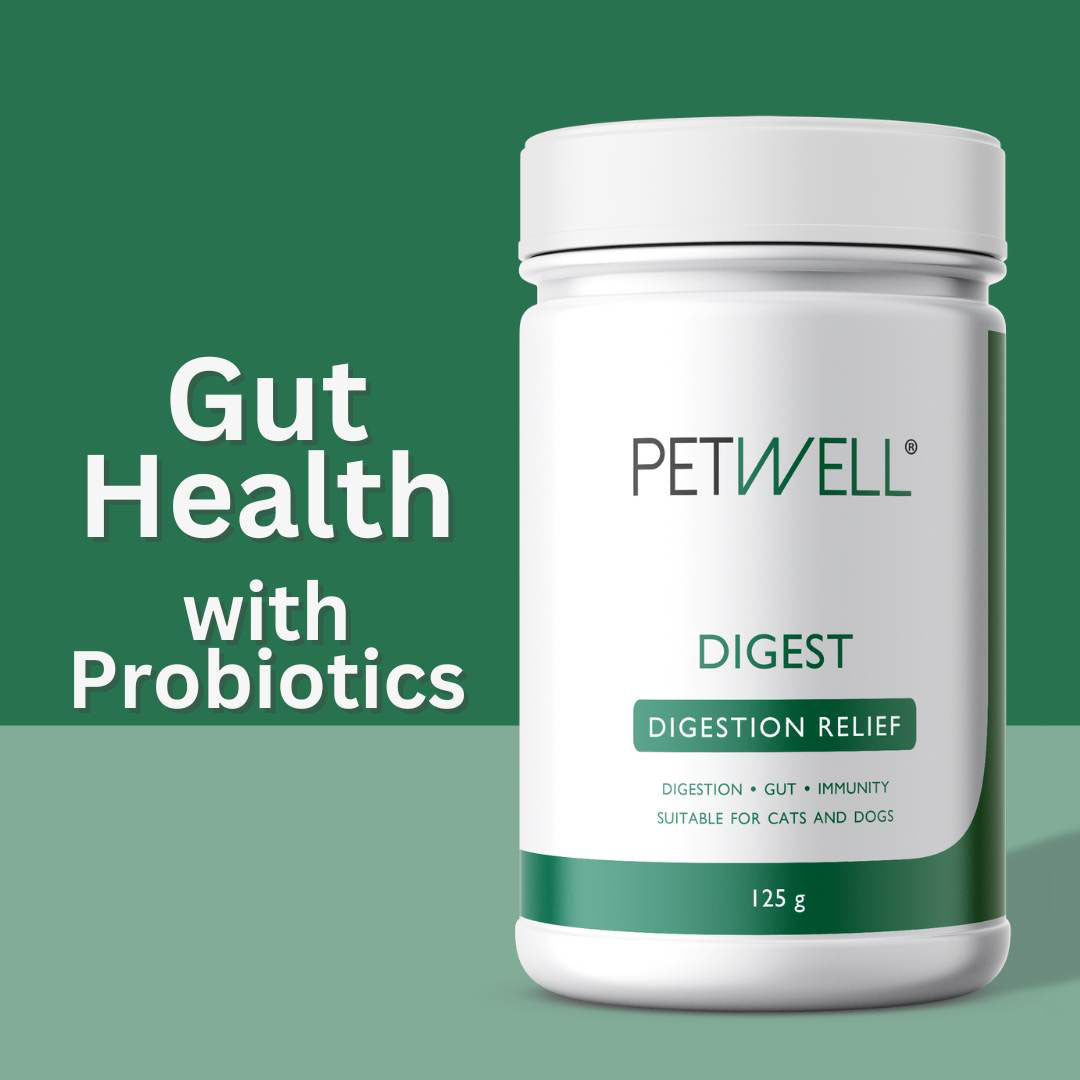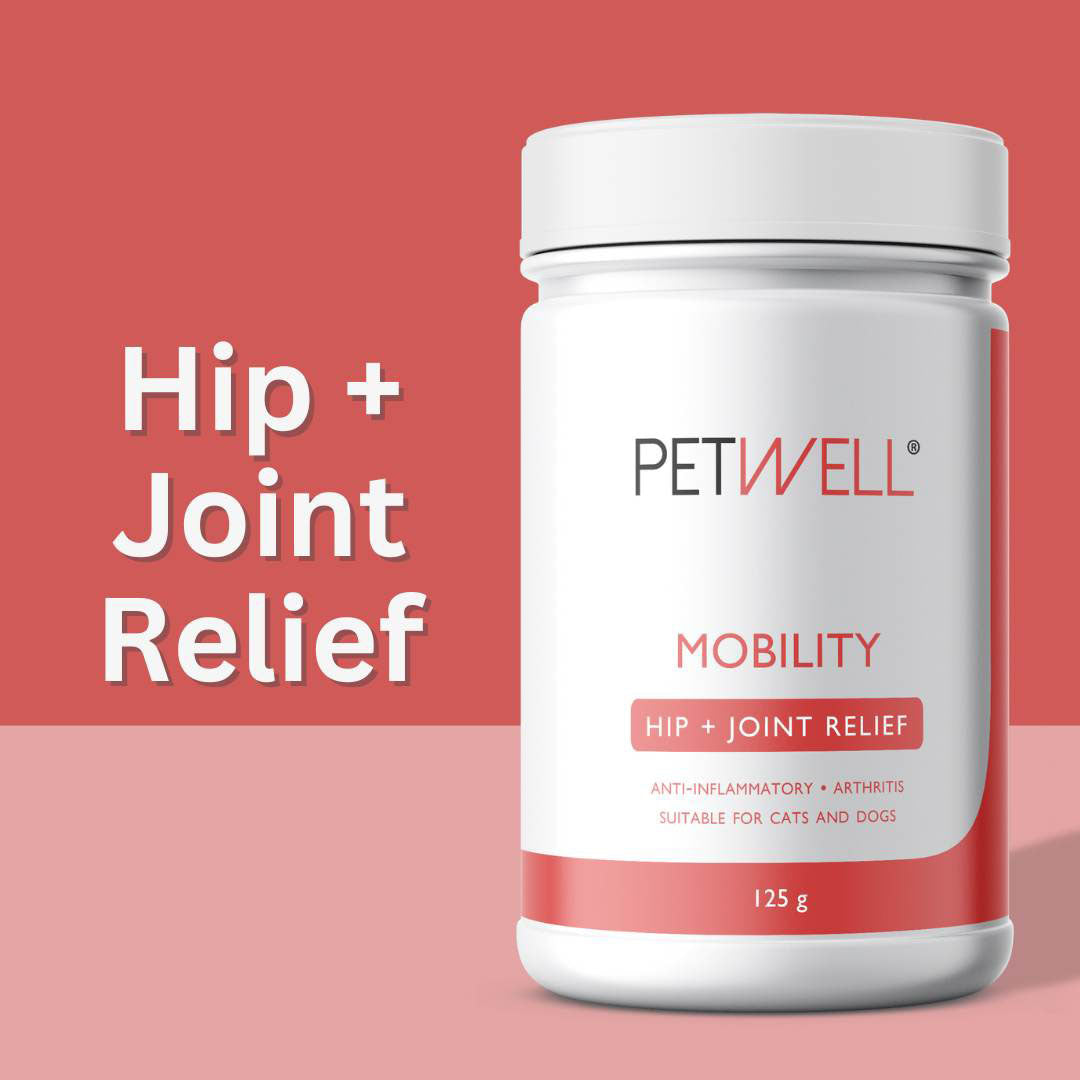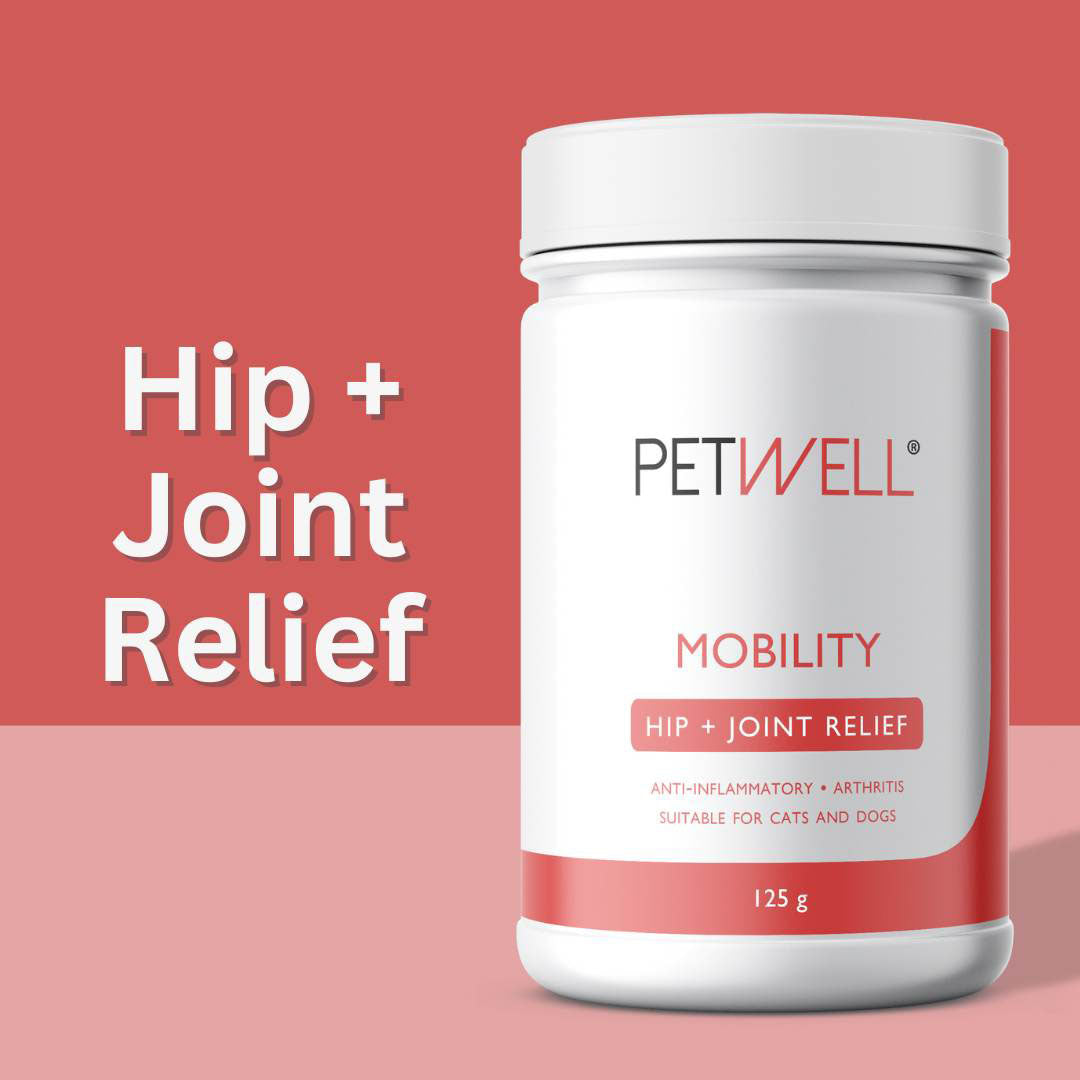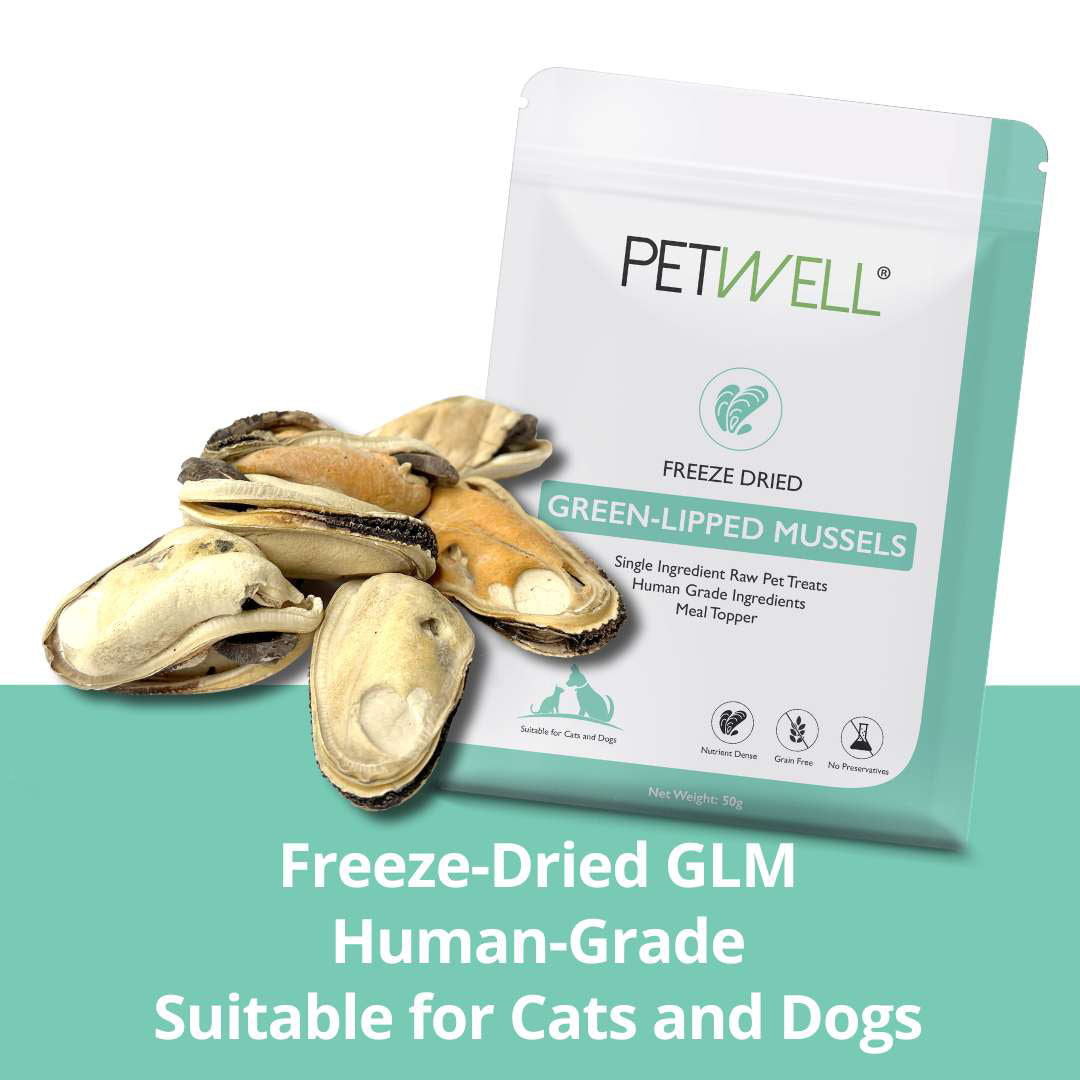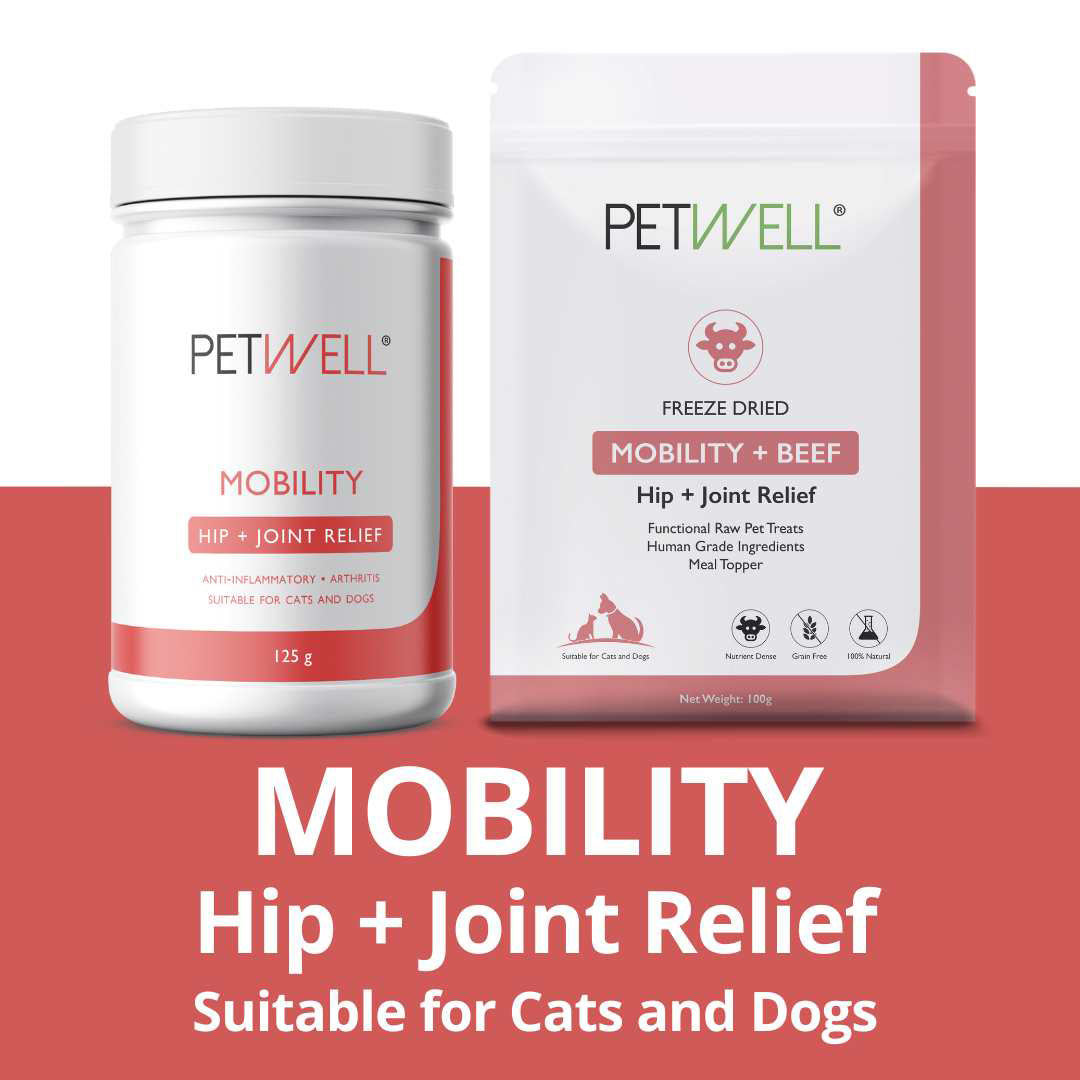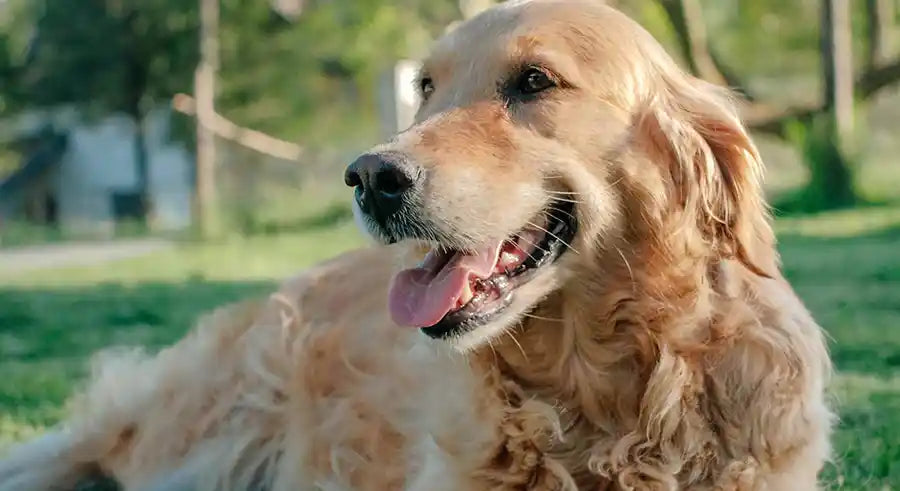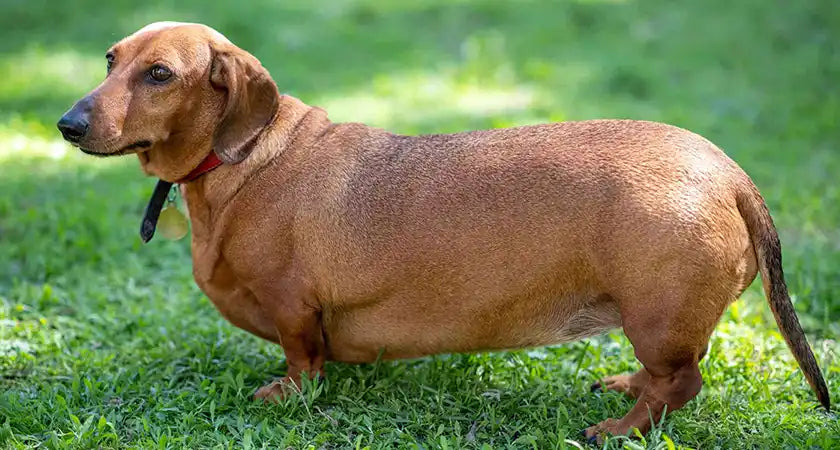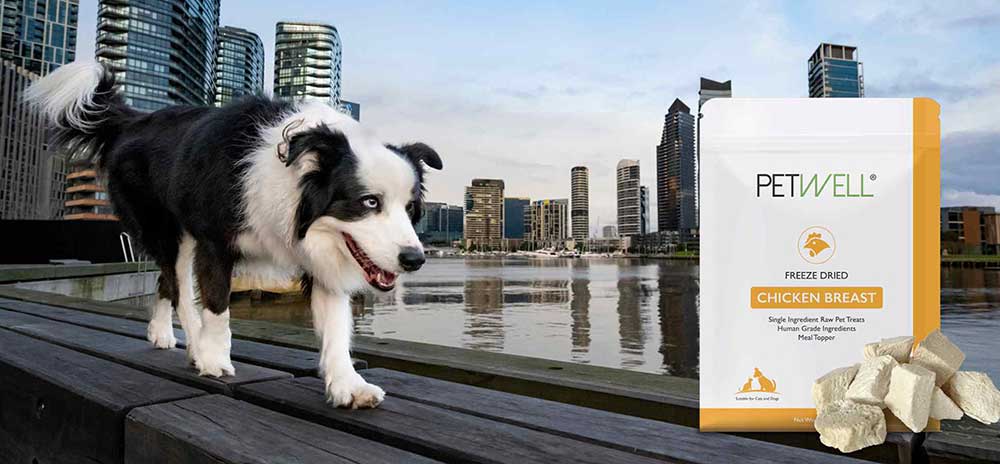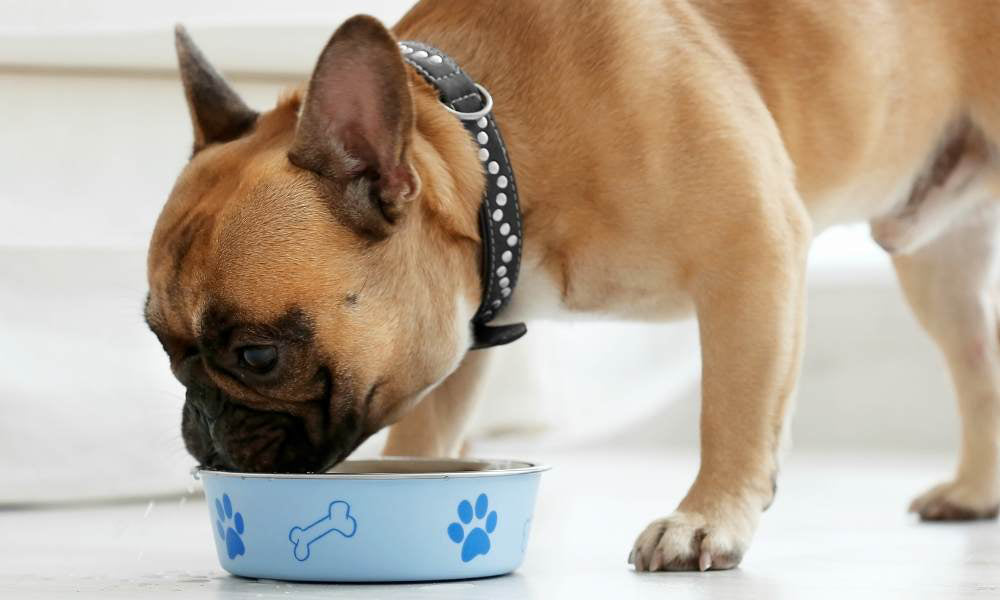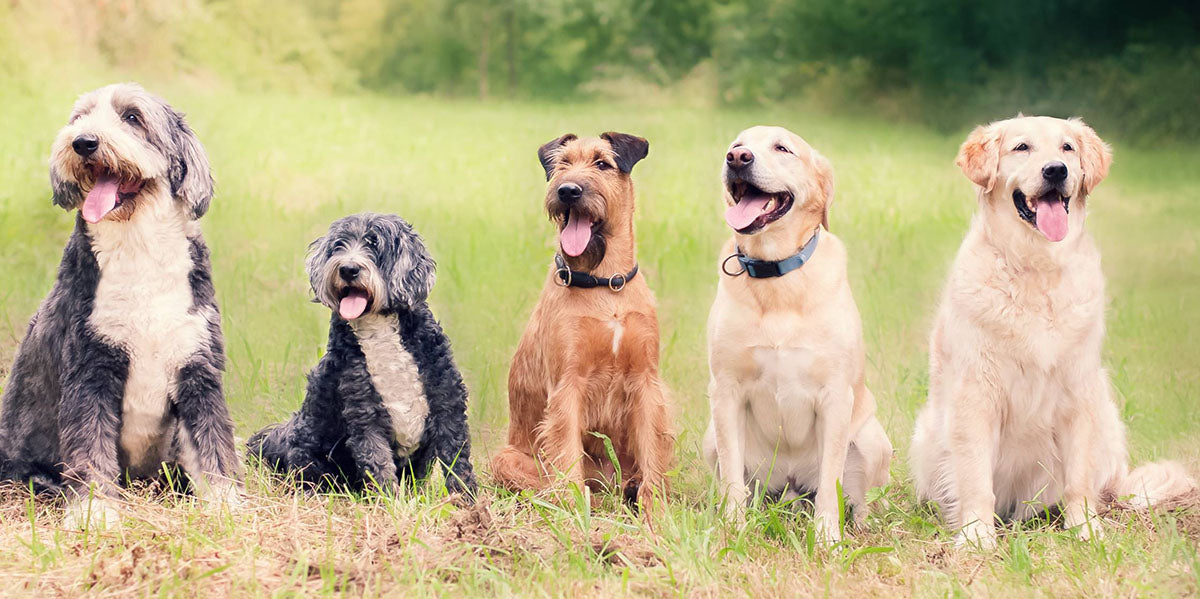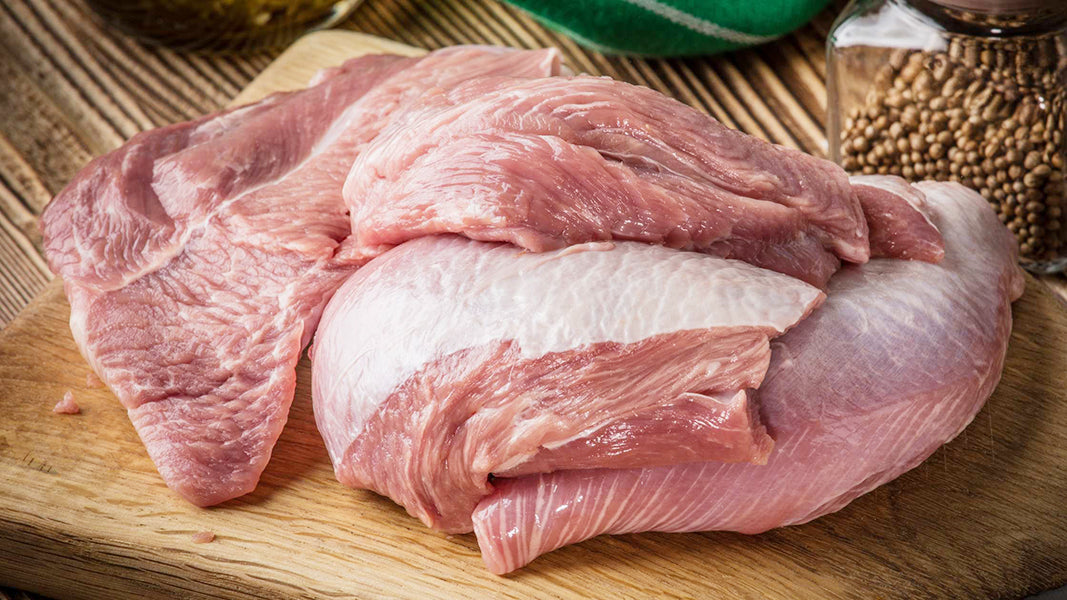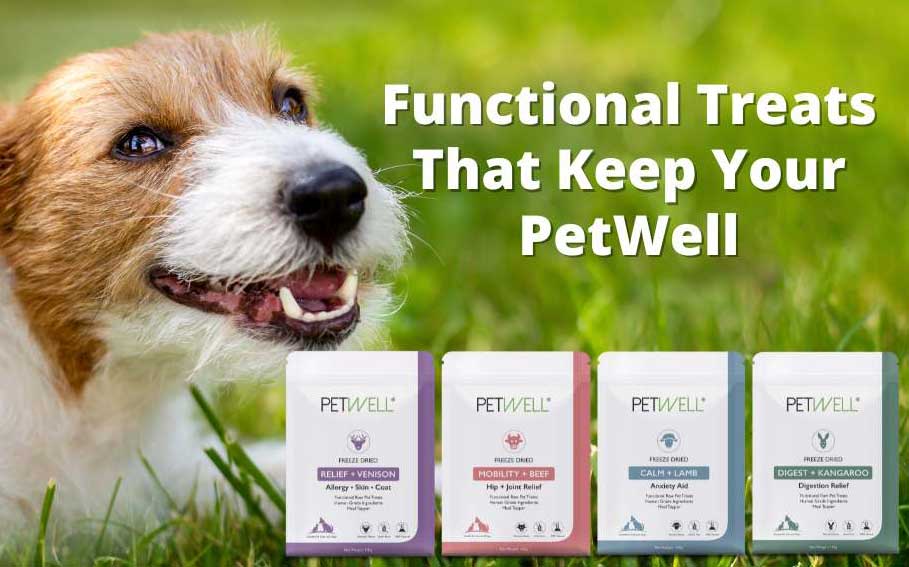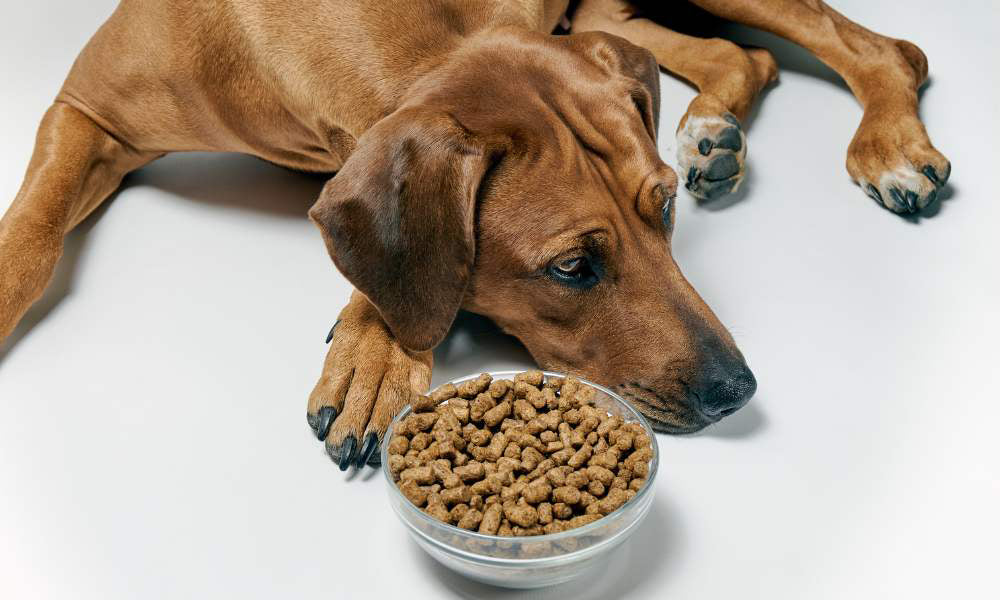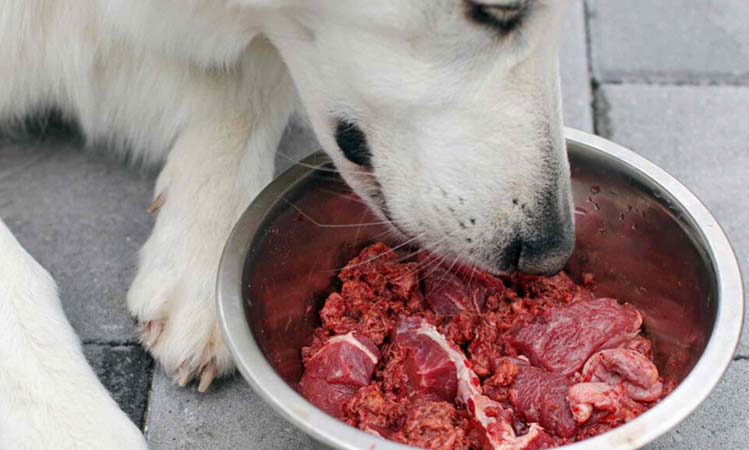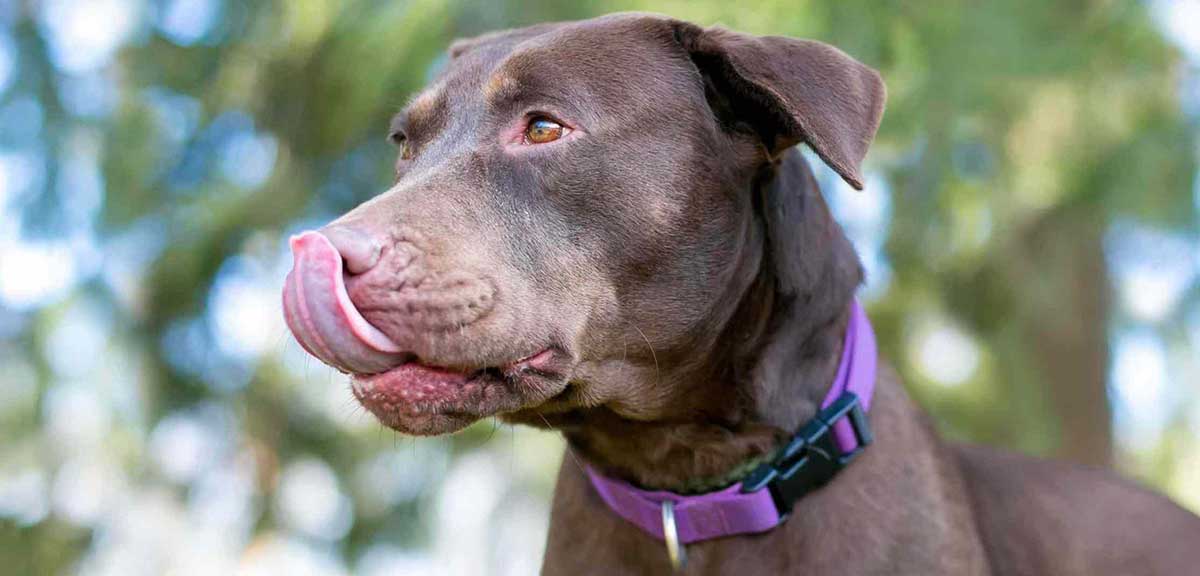Because a healthy dog is a happy dog, and at PetWell, we believe they deserve nothing less.
Quick Take
✔️ Longevity tips every dog parent should know
✔️What does a healthy dog look like? Here’s how to tell
✔️ Natural nutrition, enrichment and daily routines make a difference
✔️ Holistic care + PetWell CALM, DIGEST, MOBILITY, RELEIF = happy pup
✔️ Includes FAQs, checklists and prevention tips dog parents are searching for
How Can You Help Your Dog Live a Longer Life?
Dogs live longer when they eat well, move daily, receive preventative care, manage stress, and avoid toxic exposure.
At PetWell, we believe longevity isn’t luck, it’s daily choices. Here’s how to support a long, healthy life:
Prioritise Nutrition
- Feed a fresh, whole-food diet with lean proteins, fibre, healthy fats, and low-glycemic veggies - Pet Nutrition Guide
- Avoid ultra-processed foods, artificial fillers, or synthetic additives
- Add PetWell DIGEST to nourish their gut and immune system
Add Targeted, Natural Supplements
- CALM for anxiety and emotional wellbeing
- DIGEST for optimal digestion and nutrient absorption
- MOBILITY to protect joints and reduce inflammation
- RELIEF for daily for healthy skin, coat and immune strength and vitality
Formulated by an animal naturopath, all PetWell supplements are made in Australia using only natural, human-grade ingredients.
Keep Them Moving
- Regular walks, play, and exercise support cardiovascular health and weight
- Enrichment also keeps their mind sharp and reduces ageing-related decline
Don’t Forget Dental Care
- Dental disease can impact the liver, kidneys, and heart
- Brush their teeth, give them raw meaty bones, and book annual vet cleans. Try PetWell freeze-dried Chicken Necks.
Manage Stress
- Emotional health affects everything from digestion to immune function
- Provide a calm, enriched environment and consistent routine
- Use PetWell CALM supplement daily for anxious pets
Invest in Preventative Care
- Annual vet checks catch things early
- Routine blood work, parasite control, and vaccinations are essential
Reduce Toxin Exposure
- Ditch synthetic fragrances, toxic cleaners, and pesticide-heavy products
- Keep them away from second-hand smoke and toxic plants
Pro tip: Eat fresh, move more, stress less, same advice we give ourselves, right? Managing you dogs weight is important, read more on Keeping Your Pup in Top Shape
With a little extra care and the right natural support, your dog can live a longer, healthier and happier life.
What Does a Healthy Dog Look Like?

A healthy dog has a shiny coat, clear eyes, consistent appetite and poos, smooth movement, and playful but calm behaviour.
At PetWell, we believe your dog’s wellbeing should shine from the inside out. Here’s how to recognise a thriving pup:
Visual and Physical Signs
- Shiny coat, healthy skin and clear eyes
- Clean teeth and pink gums
- Optimal weight
- Energetic but not hyper
- Smooth movement
Behaviour & Mood
- Curious, alert and socially engaged
- Happy to nap, but also happy to play
- Calm and non-reactive behaviour
Appetite & Digestion
- Regular, well-formed poos
- Steady appetite
- No signs of bloat, vomiting, or chronic grass-eating
Support this with:
- Omega-3 rich treats (like PetWell freeze-dried salmon, NZ green-lipped mussels, crocodile and sardines)
- DIGEST for probiotic and enzyme support
- RELEIF to enhance skin, coat and immunity health
- MOBILITY for joint health
- CALM for easing anxiety and stress
How Do You Care for a Dog Holistically?
Holistic pet care supports the dog’s body, mind, and environment naturally. It complements traditional vet care.
At PetWell, we believe in:
- Targeted, natural supplements (formulated by an animal naturopath)
- A low-toxin lifestyle (clean home, clean treats, clean gut)
- Emotional health through enrichment, connection, and calm
- Working with holistic vets and behaviourists when needed
- Real, species-appropriate food
While a holistic approach can offer numerous benefits, it's not meant to replace traditional veterinary care. Instead, it complements conventional treatments to provide a well-rounded and comprehensive approach to your pet's health and well-being
PetWell supplements and treats were designed to support holistic health every day.
How Much Exercise Does a Dog Need Daily?
Most dogs need 30–60 minutes a day, depending on breed and age. Daily movement supports physical health and mental wellbeing.
Dog exercise tips:
- Let them sniff on walks, it’s enriching!
- Try beach runs, fetch, agility or swimming
- Senior pups? Gentle play counts too
PetWell MOBILITY helps support their hips and joints, especially as they age.
Why is Mental Stimulation Important for Dogs?
Mental exercise prevents boredom, anxiety, and behavioural problems. It’s just as vital as physical movement.
Stimulate your dog’s mind with:
- Puzzle toys or snuffle mats
- Training new tricks
- Lick mats topped their favourite treats
Dogs love challenges. Mental enrichment = calm, happy pup.
How Can I Make My Dog Feel Loved and Secure?
Dogs need emotional safety and bonding, not just a backyard and bowl. They are pack animals, they need connection, they are not built to be alone for long periods.
Build connection:
- Daily quality time (play, cuddles, walks)
- Keep your tone and energy calm
- Let them tag along where possible
Anxious or reactive? Our CALM range helps promote emotional balance naturally.
How Do I Boost My Dog’s Immune System Naturally?
Immune strength starts in the gut and thrives in low-stress, toxin-free environments.
Immune-boosting tips:
- Avoid synthetic fragrances and harsh chemicals
- Serve fresh food and filtered water
- Feed them high quality prolines
- Support them with gut loving treats and supplements like PetWell DIGEST.
Why Do Dogs Need a Routine?

Dogs feel safer with predictability. Routines help with behaviour, sleep and digestion.
Your daily rhythm:
- Set mealtimes and bedtime
- Regular walks, play, and chill time
- Calm wind-down before sleep
Stability means confidence for your pup. And your dog can benefit from safe Off-Leash Time
What Grooming Does My Dog Really Need?
Grooming = more than looking pretty. It supports skin, coat, nails and emotional wellbeing.
Grooming basics:
- Regular brushing for circulation and shine
- Nail trims + paw inspections
- Natural, dog-safe bath products
Check for hot spots, rashes or lumps, and get them checked early.
How to Care for Ageing Pets Naturally
As our pets get older, their needs shift, sometimes in subtle ways, and sometimes all at once. From joint pain and digestion issues to anxiety and immune decline, ageing pets need extra support to stay comfortable and happy. If you're wondering how to help your senior dog or cat live their best golden years, check out our guide: How to Care for Ageing Pets Naturally.
The key to a thriving dog lies in the love and attention you provide. And in making informed choices about their health and happiness.
Pet Parent FAQs
How often should I walk my dog?
On average 30–60 mins daily, high energy dogs like Border Collies needs 2hrs a day at a minimum. Sniff time matters more than steps.
Do PetWell supplements help dogs?
Absolutely. Always opt for a high-quality supplement that are made with natural, functional ingredients that target real pet health concerns.
Is it safe to use the powders and treats together?
Yes! In fact, we designed them that way. CALM + LAMB treats pair beautifully with CALM powder, for example.
What’s the best way to support my dog’s immune system?
Feed fresh, keep stress low, and daily exercise.
Can stress really shorten a dog’s life?
Yes. Chronic stress affects their gut, mood, immune system and sleep. CALM can help ease that burden naturally.
Final Woof from PetWell
Helping your dog thrive isn’t complicated. With real food, loving routines, emotional care and nature-backed support, you’re doing it right.
That’s where we come in.
Whether it’s calming the jitters, supporting the gut, easing stiff joints or boosting the immune system, PetWell has you covered, naturally.
You bring the love. We’ll bring the wellness. Let us help you to keep your PetWell.
The Science behind it
Don’t just take our word for it, here are some evidence-based studies for you to review.
Effects of diet restriction on life span and age-related changes in dogs
Alternative dietary fiber sources in companion animal nutrition
Innovations in Canine and Feline Nutrition
Disclaimer: The entire contents of PetWell emails and website are not to be taken as medical advice. The team at Pet Squad Pty Ltd trading as PetWell encourages you to make your own pet health care decisions based on your research and in partnership with a qualified pet healthcare professional.
Posted By Ayda Hornak - Trained in Canine Psychology and Natural Animal Nutrition Care
